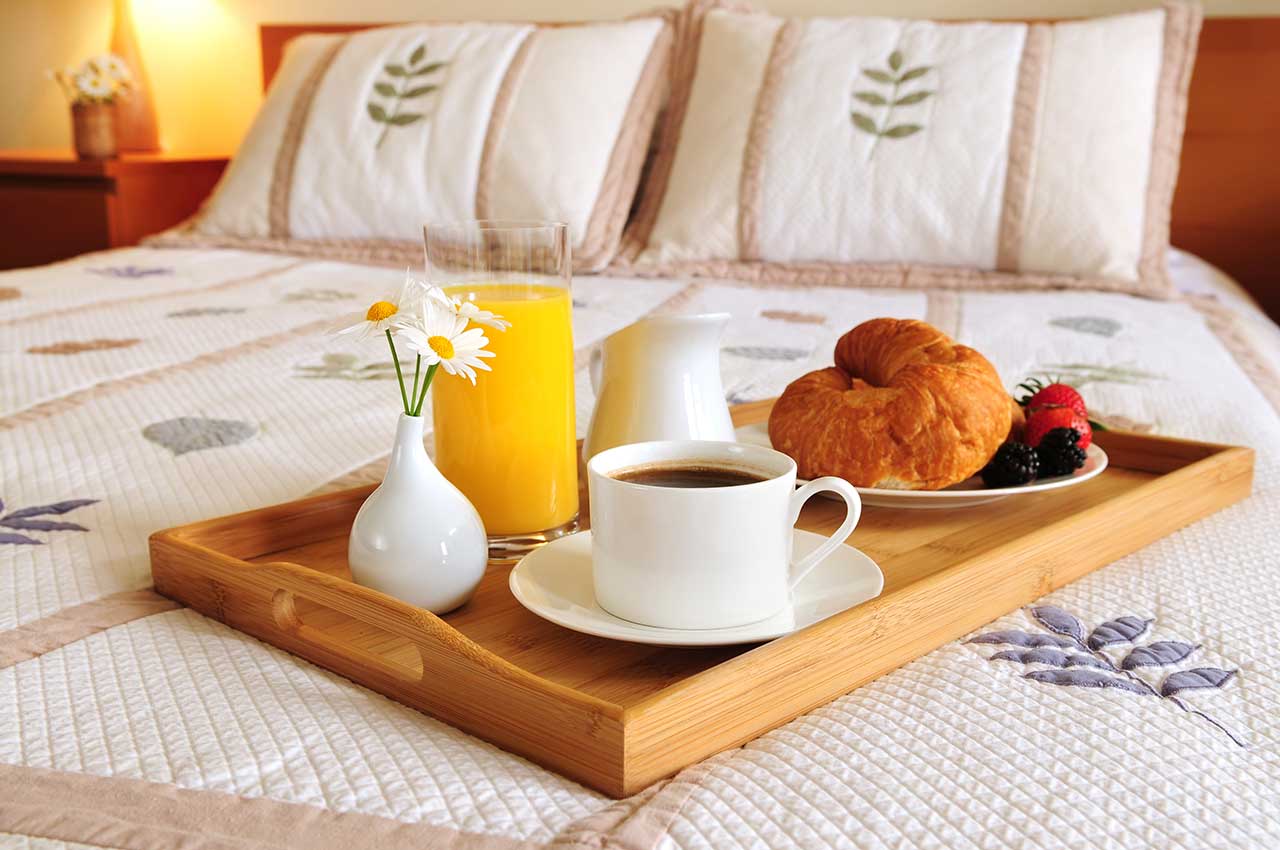Room service has always had and still has an undeniable role in hospitality. However, recent data has confirmed that despite its indisputable importance, it’s subject to operational risks, mainly related to high numbers of required personnel and low profit margins.
As Paul Sacco (CEO and president of the Massachusetts Lodging Association) said
” Room service represented just 1.2 percent of total hotel revenue, down from 1.3 percent in 2011. And it continues to drop. The hotels do it for the convenience of the guest. Is it a profit center? No. Emphatically, I can tell you no.”
However, the answer to room service profitability issues seems to be lying in technology.
New technologies are, in fact, having a big impact on tourism-related businesses and new evidence shows that successful room service goes beyond a beautiful room and qualified staff.
Guest comfort and convenience are becoming always more important and technology, more than any other factor, seems to be key in achieving them.
The end of room service (?)
Room service represents a fundamental part of hospitality services. Despite this, it’s worth only 1% of hotel earnings, according to PFK Hospitality’s 2007 data. Since then, this percentage has kept decreasing. The Midtown Hilton, one of New York’s most visited hotels, eliminated room service in 2013 for this very reason. Many mid-range hotels followed, reducing room service, either by available hours or general offers.
But, in the other hand, room service is fundamental for hotel reputation and its impact goes beyond earnings. In fact, room service is considered an integral part of hotel amenities just like swimming pools or spas: profitable or not these services shape and identify the experience offered by each hotel.
Try to imagine, just for a second, during your stay in a hotel, at night, while it’s raining outside, you get hungry and you realize that the hotel’s restaurant is closed and room service is not available. The only choices you have in that case are either vending machines or dealing with the storm! Therefore it’s easy to understand how important room service is for hotels aiming at being competitive and building a good reputation.
The room service comeback

The press pointed fingers at The Midtown Hilton’s room service removal decision. Business Insider wrote “What’s the point of staying in a luxury hotel if you’re not going to be able to order breakfast in bed?” and John Fox from PKF Consulting commented “Here’s a message to hotels that are cutting room service: Suck it up and pay the labor costs for room service, or don’t call yourself a “luxury hotel.”
Guests did the same, commenting, “There are so many hotels to choose from. If everyone is offering room service, I don’t know why I would pay the same rate with no service.”
Moreover, a recent study by Statista performed on adults aged 18 to 65 brought out that room service seems to be the most important element of hospitality-related services, second only to WiFi connectivity.

The reasons behind the importance of room service are numerous. Think for example of people traveling for business and needing a late in-room dinner. Or think of leisure travelers desiring a snack while watching their favourite tv show. It easilly becomes obvious that hotels, instead of being focused on breakfast, should start focusing on 24/7 room service solutions to match their guests’ needs. After all, people go out of their daily routines when they travel so why force them to eat only at standard meal times!
The answer is technology!
The most dynamic hotels of the world have started adopting innovative solutions to adapt to the market’s room service needs and, at the same time, use room service to delight their guests.
In New York, with the “Emoji Room Service”, offered by Aloft Hotels, guests can use emoticons to place their orders. In NH Hotels’ Mood-Rooms, guests can request a wakeup service with gradual lighting increase, uplifting music, curtains that open automatically and in-room breakfast service. Last but not least, at La Quinta Inn & Suites you might be surprised to see your room service order delivered by TigerBot, a cute delivery service robot.
However, technology by itself is not sufficient to provide a good room service experience. There are other important elements to keep in mind in order to provide the ultimate room service experience.
Know your guests…
There are many ways to improve hospitality services. But what’s the best one? The answer is simple: Listen to your guests.
Instead of just pushing standardized services to them, try to understand what their real needs are. There are business travelers needing a quick breakfast very early in the morning before the breakfast buffet becomes available. There are also leisure travelers (representing a huge percentage of overall travelers) who desire a coffee or a snack while they are relaxing in their rooms and at any time of the day (or the night). The only way to satisfy the needs of the above is smart and efficient hotel room service.
…and be with them!
A very important parameter of an efficient and profitable room service is timing!
Guests want their orders delivered immediately and hotels require the right time to prepare and deliver room service orders. As long as a guest is in his/her room, has available a room service menu and the hotel is ready to deliver things are quite straightforward.
But what happens if a guest wants to place an order from outside the hotel desiring to have it ready and delivered at his/her return? Calling the reception, asking for the available options and costs and placing the order by phone becomes frustrating and time consuming and would simply result in an unsatisfied guest and a hotel losing orders and revenues.
Fortunately that’s not the case anymore as new smart tools appearing in the hospitality horizon are giving new answers to the needs of the most demanding travelers and hoteliers.
Manet is one of these tools and it’s changing the way hotels interact with their guests as, thanks to Manet devices, hotel guests can book hotel services and place room service orders anytime and from anywhere. In fact, Manet smartphones contain extensive information about all services and menus offered to guests by their hotel and also allow fast, effective and ubiquitous text communication between guests and hotel front desk staff.
Thanks to innovators like Manet, the future of hospitality looks really exciting and full of surprises and hotel room service issues, like high costs, are slowly but steadily being transformed in amazing business opportunities for hoteliers.







